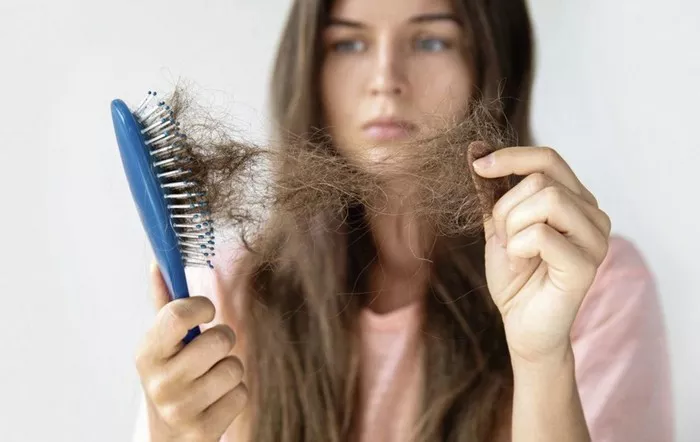Hair thinning, a common concern affecting individuals globally, can significantly impact self-esteem and confidence. Despite the vast array of hair care products and treatments available, understanding the root cause of thinning hair is paramount for effective management and prevention. In this article, we delve into the intricacies of hair thinning, exploring its primary causes and shedding light on potential solutions.
Introduction to Hair Thinning: A Universal Predicament
Hair thinning, often synonymous with hair loss or alopecia, manifests as a reduction in hair density and diameter, resulting in a visibly sparse appearance. While the aging process naturally contributes to hair thinning, various factors can exacerbate the condition, leading to premature or excessive hair loss. Understanding the underlying mechanisms driving this phenomenon is crucial for devising targeted interventions and promoting scalp health.
Genetic Predisposition: The Foundation of Hair Thinning
Genetic predisposition stands as one of the leading determinants of hair thinning, with hereditary factors significantly influencing an individual’s susceptibility to alopecia. Research suggests that genes inherited from both maternal and paternal lineages can dictate hair follicle sensitivity to dihydrotestosterone (DHT), a potent androgen implicated in the miniaturization of hair follicles. Consequently, individuals with a family history of pattern baldness are more likely to experience progressive hair thinning as they age.
Hormonal Imbalance: Unraveling the Role of Androgens
Hormonal imbalance, characterized by fluctuations in androgen levels, represents another pivotal factor contributing to hair thinning. Androgens, including testosterone and its derivative DHT, exert a profound influence on hair follicle function, regulating both growth and regression phases of the hair cycle. Elevated levels of DHT can disrupt the delicate equilibrium within the scalp, triggering miniaturization of follicles and impeding the production of robust, healthy hair strands.
Stress and Telogen Effluvium: The Impact of Psychological Factors
Psychological stress, whether acute or chronic, can exert a profound toll on overall health, including hair vitality. Telogen effluvium, a reversible form of hair shedding induced by stress, disrupts the normal hair growth cycle, prompting a disproportionate number of follicles to enter the resting phase prematurely. While the precise mechanisms underlying stress-induced hair thinning remain under investigation, it is widely acknowledged that hormonal fluctuations and immune system dysregulation play pivotal roles in precipitating this phenomenon.
Nutritional Deficiencies: Nourishing the Roots
Adequate nutrition serves as the cornerstone of optimal hair health, with deficiencies in essential vitamins and minerals predisposing individuals to hair thinning and brittleness. Iron deficiency anemia, characterized by insufficient levels of circulating iron, can impair oxygen delivery to hair follicles, compromising their metabolic activity and contributing to hair loss. Similarly, deficiencies in biotin, vitamin D, and zinc have been implicated in the pathogenesis of alopecia, underscoring the importance of a balanced diet for maintaining robust, lustrous hair.
Environmental Stressors: Unveiling the Impact of External Factors
Environmental stressors, ranging from exposure to ultraviolet (UV) radiation to chemical pollutants, can wreak havoc on hair health, accelerating the onset of thinning and promoting follicular damage. UV radiation, in particular, can induce oxidative stress within the scalp, triggering inflammation and DNA damage within hair follicles. Moreover, frequent use of harsh styling products and thermal styling tools can compromise the structural integrity of hair shafts, exacerbating breakage and contributing to overall thinning over time.
Medical Conditions and Medications: Exploring the Nexus
Certain medical conditions and medications can precipitate hair thinning as an unintended consequence of their primary mode of action. Autoimmune disorders, such as alopecia areata and lupus erythematosus, can incite immune-mediated damage to hair follicles, resulting in localized or diffuse hair loss. Additionally, medications prescribed for chronic conditions, including chemotherapy agents and immunosuppressants, may disrupt the hair growth cycle, leading to temporary or permanent thinning in susceptible individuals.
Lifestyle Choices: Striking a Balance
Lifestyle choices, encompassing dietary habits, smoking status, and exercise routines, can exert a profound influence on hair health and overall well-being. Smoking, for instance, has been linked to microvascular dysfunction and oxidative stress, impairing nutrient delivery to hair follicles and impeding their regenerative capacity. Conversely, regular physical activity and stress-reduction techniques, such as mindfulness meditation and yoga, can mitigate the detrimental effects of stress hormones on hair growth, promoting a more resilient scalp environment.
Conclusion: Navigating the Path Forward
In conclusion, hair thinning represents a multifaceted phenomenon influenced by a myriad of intrinsic and extrinsic factors. From genetic predisposition and hormonal imbalances to environmental stressors and lifestyle choices, the etiology of hair thinning is complex and multifactorial. By elucidating the underlying mechanisms driving this condition, individuals can empower themselves to make informed decisions regarding hair care practices and seek tailored interventions to preserve scalp health and promote hair regrowth. Through a holistic approach encompassing dietary modifications, stress management techniques, and targeted treatments, individuals can reclaim control over their hair health and embark on a journey towards thicker, more resilient locks.


